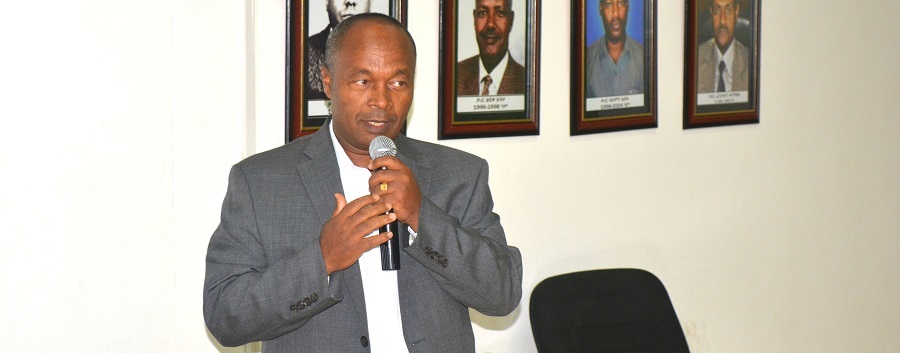
About three decades ago, the United States officially dedicated and recognized March as the Women’s History Month, when the contributions of women to society are highlighted and recognized. In the recent past, the United Kingdom and Australia have also declared March as the women’s month, and Canada marks it in October. South Africa commemorates Women’s Month every August. Globally, the annually celebrated International Women’s Day (IWD) falls on March 8; this year’s IWD theme was ‘Balance for Better.’ With a growing momentum toward ensuring equal participation of men and women and finding a gender balance for optimal use of available resources and opportunities, the focus is not just on the socio-political arena. What are other sectors such as agricultural research and development doing to achieve gender balance for better?
As part of its agenda to support institutional capacity for gender-responsive agricultural research, African Women in Agricultural Research and Development (AWARD) partnered with the Ethiopian Institute of Agricultural Research (EIAR) to implement a series of interventions, including a customized AWARD Fellowship for EIAR’s women agricultural scientists. This intervention responds to a recent gender audit at EIAR which revealed a negligible representation of women scientists in various research departments and leadership positions at EIAR.
We caught up with the EIAR Director General, Dr. Mandefro Nigussie, who is at the forefront of ensuring more representation and participation of women researchers in his institution.
Q: Why is the launch of the Customized AWARD Fellowship important for EIAR?
A: The launch of the Fellowship is not only important but also timely for EIAR. We are currently facing a gap in our leadership, with women constituting only 24% of EIAR’s workforce. Although we have gender focal persons in various research departments, they are not adequately trained on how to guide the research teams, thus affecting their effectiveness. If we have committed to mainstream gender, then we must maximize our efforts by building the capacity of our staff.
Q: Why is gender awareness important in agricultural-dependent systems?
A: If we are going to achieve agricultural prosperity, then we need both men and women, and it is critical that we establish systems that support equal participation at all levels. In the past, EIAR’s leadership was majorly male-dominated. As a result, the technologies and innovations that we developed were not gender-sensitive. For instance, we developed a haricot bean (common bean) variety to increase yield and boost farmers financial stability. However, the variety was found to be demanding for women because it needed more fuel, thus making them spend more money on firewood. Without realizing it, the technology we developed was more harmful to the women than it was beneficial. By developing gender-sensitive technologies, we are conscious of the needs of both men and women. We can only achieve this when we have a balanced leadership front.
The priority is to increase the number of women researchers and build their capacity to deliver effective research and advance their careers. When you avail opportunities for the scientists to grow their leadership and scientific skills, then they will contribute to research that serves both men and women.
Q: EIAR recently embarked on a gender audit. What prompted the move and what are your next steps after the audit?
A: We realized that not all our research results were reaching the farming community. We also found out that the research did not adequately address the needs of the women farmers. These findings prompted the gender audit which revealed an acute gender gap in EIAR’s leadership. Following this report, we are developing a strategy and an action plan to address the gap effectively. We are also strengthening our gender units within different research departments to challenge us to provide better solutions for the leadership strategy at EIAR.
Q: How will the customized AWARD Fellowship impact Ethiopia’s agricultural research and development?
A: One of the objectives of this intervention is to connect junior scientists to senior scientists. The link will enable them to share experiences and acquire new skills that will transform the way we do things as well as empower the young researchers. Empowering the researchers will effectively influence our quality of research and how we disseminate our inventions and innovations to the local farmers. Ethiopia’s agriculture stands to benefit when we become more gender-sensitive and improve the face of leadership at EIAR. It is also inspiring to note that the intervention will serve to build and strengthen EIAR as a renowned research institution.
EIAR has made commendable efforts toward achieving ‘balance for better.’ To increase the number of women researchers in its 17 research centers, they recently recruited 100 young women graduates into positions of agricultural scientists. Half of the beneficiaries of the customized AWARD Fellowship are the newly hired women scientists.
Since 2008, AWARD has, through individually tailored two-year fellowships, worked to strengthen the research and leadership skills of African women in agricultural science, empowering them to contribute more effectively to alleviating poverty and increasing food security in sub-Saharan Africa.
